Interview: Willie Chambers of the Chambers Brothers
Interview: Willie Chambers of the Chambers Brothers
Jason LeValley of Psychedelic Scene: Thank you so much for agreeing to do this interview. I really appreciate it.
Willie Chambers of The Chambers Brothers: My pleasure. Been wanting to talk about this stuff.
LeValley: That’s great. So you guys cut an album 50 years ago called, Oh my God, but it never got released.
Chambers: Never got released.
LeValley: Yeah. What happened?
Chambers: I don’t know. There was something very suspiciously going on between some people in Philadelphia. I dunno if, you know Gamble and Huff. They were producing that album and there was some kinda thing going on with Columbia Records. I don’t know what it was, but it must have fallen through because nothing got continued.
LeValley: Okay. So it looks like it’s just recently been released or put up on Spotify.
Chambers: I didn’t know that until you mentioned that.
LeValley: Yeah. I listened to it.
Chambers: Mm-hmm. <affirmative>.
LeValley: It sounds like a good record.
Chambers: We thought it was kind of great. It was coming out good. We thought it would be a strong introduction, a strong property, but it never got released. One of those things.
LeValley: So it’s finally gotten released, but you didn’t even know about it. That’s weird.
Chambers: Didn’t know about that either. We were hesitant though cause we all felt something was not, uh, what’s going on. So we kind of hesitated to use any of our original songs that we had written. But we did mostly cover tunes on that and songs that were written by other writers.
LeValley: Mm-hmm. <affirmative>.
Chambers: Yeah. So…
LeValley: Alright. So you guys came to prominence in the late 60s and I was wondering if you guys, you and your brothers, were hippies. Did you consider yourself hippies? Did you feel like you were part of that subculture?
Chambers: I was a hippie 100% plus. 100% plus I was a hippie. The title that the media gave everybody, it started out to be beatniks. I remember when there was maybe 60 people we used to meet at the beach, play drums all night, and drink beers, and smoked tobacco of sorts. And we got chased off the beach because people didn’t like the drums in the middle of the night. So we got kicked off the beach. We were considered to be beatniks, they called it. And the next thing I know, we were considered to be hippies because we, everybody used the phrase, “That’s hip. That’s hip”. Everything was hip. If it’s not hip, we ain’t hip with that. And I don’t know if that’s where they got the title from– hippies, but I was whatever. Whatever it was then, whatever it is now that I was part of that. I spoke to my brother Joe about… We were talking about that one day and he said he was not a hippie. Okay. I said, Well, okay, my brother’s not a hippie. I’m a hippie. I dunno if the rest of my brothers were. We dress like hippies. Look like hippies.
I would remember when people, wealthy kids, made fun of hippies. Look at those freaks. Look at those weirdos. Look at those weird people. People didn’t cut their hair, didn’t shave anymore, and they had their own… Everybody had their own identity and they pretty much wore the same clothes. People considered that not to be a sign of cleanliness and good health, and thought that people were just being funky and not cleaning themselves. And, the police grabbed up a bunch of hippies and ran them through the car wash cause they thought they didn’t bathe. And that was not the case. I remember the rich kids used to poke fun at all the kids that were hippies. Look at those freaks. Look at those weirdos. And in Central Park, in New York City, the hippies gathered there every Sunday morning.
It was a religious experience. We sang songs, played banjos, guitars, drums, and tambourines and horns. All day long it was a celebration. And the six o’clock news channel would come through the park and shoot some footage. And they would show that on the six o’clock news. Well, that encouraged wealthy kids who was poking fun at the hippies. Now they wanna be on TV. So they knew how–they learned how to dress. They didn’t cut their hair. And it was an infiltration. The whole hippie thing got infiltrated. And by the time of Haight-Ashbury, it was over. Haight-Ashbury was not a part of the true hippie movement, or whatever you wanna call it. That was an infiltration by the time of Ashbury, there was corruption. There was evil, terrible people and the hippies were peace-loving.
I said, “This is gonna be our contribution to psychedelic music”. And I turned the two and a half minute “Time Has Come Today” song into 11 minutes and some seconds.
It was all about love and peace and happiness, love, peace and happiness. The time had come for love, peace, and happiness. And like, and that’s what the hippies were until all these other people, the kids that could afford all the turquoise belt buckles and the turquoise bracelets and all of that, they became.. they looked like hippies. But that’s when the drugs and all the heavy drugs and everything came into the hippie thing. And a lot of kids got destroyed by that. And it was an infiltration that nobody… I haven’t seen a movie or read a book to this day that really covers what the hippies were about. It started in the fifties and it was honest. It was true, honest people. And until the infiltration came, nobody seems to notice what was going on with that. How, how did these people become hippies?
Why did they become hippies? They saw all the girls, all the free love, all the beautiful young women. They saw all the free love, all the hugs, the flowers, and the television. When the people came through Central Park and would shoot some sort of footage of what the hippies were doing. And then at the six o’clock news, people saw themselves on TV. And to some people, that was quite an accomplishment to see yourself. “That’s me! That’s me! That’s me!” And then here come all these other people who didn’t have the hearts, the hearts and the minds and the love of a hippie, but they looked like hippies. They could afford all the, the jeans, the turquoise, the whatever, the silver, the jewelry, all of the stuff that made them look like a hippie. But it was an infiltration.
LeValley: So this infiltration, you said at the time of Haight Ashbury, would that be like 1967? Is that roughly what you’re talking about?
Chambers: After the fact? Yes, sir.
LeValley: Okay. All right.
Chambers: I was there. I know. <laughs>.
LeValley: What was that?
Chambers: I was there. I saw and I noticed.
LeValley: Okay. Okay.
Chambers: Haight Ashbury was after the fact.
LeValley: You were there in San Francisco in the Haight Ashbury District? Or do you just mean you were there at the time?
Chambers: No. What I meant by…I was part of the whole hippie thing. I was…We were living here in Los Angeles at the time when it all started. But we ended up living in New York where the hippies were The whole planet was saturated with hippies. There was young people who came from wealth. They came from wealthy families. They walked away from their inheritance because they did what their parents was teaching them. They went off to school in places and they met other kids. People met other people of different races and found out what their parents was teaching them was not true and not right. And they became, they walked away from their inheritance. Wealthy kids from wealthy families were hippies. A lot of them were hippies. They walked away from everything because they didn’t want to…They couldn’t believe that anymore. They were raised to believe one thing. And when they got out in life, they found it to be another situation. And they became hippies. There was nothing but love. You didn’t need an apartment. You didn’t need a house. You didn’t need a car. It was always somebody going to Chicago to New York. The hippies– trucks, buses, Vans, Volkswagens, VW Vans and everybody. You could go… Wherever you were, you could sleep. There was a couch, a floor, a rug. You could sleep wherever you were. Cause there was nothing more greater than people’s concern for one another. You didn’t need certain things because the hippies looked after each other. Because there was… You didn’t know somebody’s name. You didn’t know names. It was, “Hey brother, hey sister, Hey brother. Hey sister”. You know, your name was very rarely mentioned. It was “brother, sister, dude”.
Charles Locke
LeValley: And of course, there were psychedelic drugs going around. Did you and your brothers partake and did the psychedelic drugs factor into your creative process?
Chambers: I never did drugs in my whole life. I’ve smoked marijuana. The most anything pertaining to drugs I ever saw among the hippies before it was infiltrated was marijuana. Everybody smoked marijuana and drank beers and played music all night. You know, nobody was into anything heavy. And then in later years: Benzedrine, bennies, reds, red devils.
LeValley: Right. Uppers.
Chambers: I never saw any need for any of that. I always had plenty of energy. I didn’t need uppers. And I certainly didn’t need downers. (Inaudible) me sit in the corner and sleep all night. And then later years, then after the infiltration, there was like drugs of people were getting wealthy on selling drugs. I remember at festivals and outdoor events where there was like hundreds of thousands of people. And there was announcement that came on the stage between every access. Okay, you drug dealers, you need to share some of your, your revenue. You know, you’re making a lot of money here. Mm-hmm. <affirmative>, You know, come on the, And <laugh>. It’s, it’s so weird. So weird. I remember we were, I think it was in Florida. It was a, a festival, outdoor festival going on. And like, somebody would come on stage between just about every act and say, Whatever you do, Atlanta, Georgia, don’t go outside. Don’t go outside the area. ‘Cause there was like… they put a temporary board fence around the whole place. ‘Cause they wanted people to pay to get in. And people had to come through entry. And like the rest of it was sealed off. And I was walking into the site and I… There was a board that was loose. So I slid outside that board and I pinned myself against the wall. And I stood there for a long time. And I saw little fat guys with bellies and the Bermuda shorts and their trunk open with coolers. And that’s where the drugs were coming from.
Chambers: The drug dealers would go outside, load up out there, and there was cars lined up all the way down. And the police were there and not barring those people, but they were arresting. In the news you would see where 20-30 hippies got arrested for drugs. And the drugs came right from under their nose. I know ’cause I stood outside for hours and watched everything going off. “Don’t go out there. The Ku Klux Klan is out there, and you could get hurt, You could lose your life”. And some kids did die. ‘Cause there was a creek, a stream down below. And kids were swimming and jumping in the creek. And one kid was drowning. The black kid was drowning. And some, uh, white hippies, they wanna jump in to save him. The police says, “don’t move”. They wouldn’t allow anybody to go in and rescue this young man. He drowned. And his girlfriend gave me his cap, gave me his hat. “I want you to have this. That was my boyfriend’s hat”. So I, I got the hat. I don’t have it today ’cause moving around, it got displaced somewhere. And I had stuff stored in the garage here at my parents’ house. And the roof in the garage leaked. And a lot of stuff got destroyed.
LeValley: Well, that’s a shame.
Chambers: Yeah.
I never had an urge or desire to be anything other than natural. That’s a high enough for me.
LeValley: Well, let’s move on. You guys are often associated with the term “psychedelic soul” and I was wondering, was that considered a real genre back then? Or is that more of a media creation?
Chambers: That was a media creation. I never heard of psychedelic soul. What is psychedelic soul?
LeValley: Yeah. That’s what I can’t figure out.
Chambers: I think they used that term because black artists like ourselves, we were doing what was considered psychedelic music. And we used the new, we used the phrase “psychedelicize”. That was a word I never heard before. I don’t know where it came from. But my brother was writing that song and he got to that point. He said, “I’ve been loved and put aside/ crushed by tumbing tides/ And my soul has been…”, He couldn’t finish it. And I said, “psychedelicized”. And he says, I can’t say that. What, you know, because of the church and God and religion, you can’t be messing around with religion and your soul and all this kinda stuff. So he says, “I can’t say that in the song”. I says, “What you gonna say?” He gimme a few days. He had written about a two and a half minute song. “The Time Has Come Today”. I was laying in my bed one night in our band house and all of a sudden I got this… Something came over me and it said, and it says, “take the song to this part and just stay right there on that key and, and do some psychedelics”.
I went and got all my brothers, “Hey man, let’s go down in the studio”. We had a two story band house and we had a basement. We had a rehearsal studio in the basement. We could play music 24 hours a day and we couldn’t disturb anybody ’cause we in the basement. I went and knocked everybody up and said, “Get up! We gotta go into the studio. I got an idea”. I said, “This is gonna be our contribution to psychedelic music”. And I turned the two and a half minute “Time Has Come Today” song into 11 minutes and some seconds. And like the words, “my soul has been psychedelicized”. My brother didn’t want to use that because it says “my soul”. And then it said “psychedelicize”, and he was a little bit leery and so was my other brothers, but we kicked it around and we could not come up with any other words other than what had been issued to me from the spirit of whatever– the music God said, “my soul has been psychedelecized”.
LeValley: And it turned out to be a very famous line.
Chambers: It was a word that has never been… It was a new word that nobody had ever heard. Psychedelicize. You know, you heard psychedelic, but psychedelicize means you a convicted psychedelic, You are psychedelic to the bone. <laughs>
Columbia Records
LeValley: Right. But as you mentioned, you didn’t personally take psychedelic drugs. But what about your brothers?
Chambers: Well, when he wrote that song…You might remember Dr. Timothy Leary.
LeValley: Of course.
Chambers: He was at either UCLA or USC doing a thing on psychedelics…on LSD. My brother Joe went to that session and he experienced LSD from Dr. Timothy Leary. He was passing it out and he was lecturing kids and telling them how to use the drug and how not to use the drug. It was…it would’ve been a really great…It could have been a great drug, but when you overdo, when you overuse, like all the drugs is… people don’t, they don’t seem to have a limitation on how much they consume. And that’s the problem with the powerful drugs. The people… their consumption is too great for the mind and the body to handle. And it becomes a bad thing. And that’s what Dr. Timothy Leary…He was trying to teach the kids how to not over overuse the drug.
And I did. We were living up in, in the Bay Area up on the cliff somewhere ’cause we weren’t, we were supposed to be writing songs and wasn’t getting it done. Our manager put us in a house. We didn’t have a car or nothing. And my brother Lester had a tab of LSD and one night he says, “I have some LSD” “You do?” “Yeah”. “What are you gonna do with that?” He says, “I don’t know, somebody gave it to me”. So we popped it open and it’s like powder, put it on the table. And everybody trying to see what it tastes like. And you know, when you see what it tastes like, you actually, you’re getting LSD. I took my finger and dabbed it and I put it to my tongue.
Couldn’t taste it. I did it a second time. There’s no taste. But in a few minutes you start to feel, you start to feel a religious surge come over you. It’s very, very mild and very pleasant and very nice. I could see how people could easily overuse the drug. ‘Cause really just a dab on the tongue would be plenty, Well, I have a low tolerance. I could never drink more than two beers in a night. And I would be drunk. <laughs> I have a low tolerance for anything. Anyway, that was my experience with LSD and later years, I acquired, I kept it ’cause girls liked it. Girls liked it, and whatever girls like, guys wanted to have. So I had my stash, but I wasn’t, I wasn’t what you would say a user of psychedelic drugs. I never had an urge or desire to be anything other than natural. That’s a high enough for me.
It should be enough high for anybody. <laughs>. Really.
LeValley: All right. Well, how often have you and your brothers gotten confused with the Chambers brothers’ drug ring?
Chambers: Oh, our gangster cousins in Detroit.
LeValley: That’s right. It’s weird because there were four of them and four of you, and one of them was named Willie.
Chambers: Yeah. You know, it’s never, never happened. Never happened. They show up at every family reunion. They show up at every family reunion and they set themselves aside from everybody. They stay in a group among themselves. They just kind of stay together. They put on shirts alike, whatever. Whatever one guy wears, the other guy wears. And they just, they just kinda stand back and observe every… all the festivities that’s going on among the family. And like, our family is so huge. There’s a Chambers… I got a relative in every city, every state, every country.
LeValley: So they were actual blood relatives of yours?
Chambers: They’re blood relatives.
LeValley: Oh, I didn’t know that.
Chambers: They’re gangsters. You know, I haven’t lost any love for them. Any respect. I don’t respect what they do. I don’t condone what they..I don’t like what they do, but I don’t hate them either. They’re my blood relatives and I love them. I love them. I don’t try to give them any advice of what they should do or shouldn’t do. And they don’t do the same with us. They leave us alone. We leave them. They chose that type of life. And I don’t, for what reason, I don’t know. There’s no profit in it really. ‘Cause I had some gangster friends here in LA when I was a younger guy. These guys were dope dealers. And they loafed it up like loaves of bread, wrap it up in aluminum foil and poke and pack it into a safe.
And every two weeks they gotta move it to another location because there was the gangster guys that came and robbed the gangsters <laughs>. So I said, “How can you be comfortable with this? How can you get comfortable with this? You can’t put it in the bank. You can’t go buy property. You can’t do nothing”. You accumulate all this money and you can’t use it. You can’t put it in the bank. You can’t give the government an account on what you… you can’t do nothing. It’s misery. It’s misery. I saw them all suffer through it and they got… I saw people get robbed. I didn’t see ’em get robbed, but I knew people who got robbed and they… and some people got killed because of the money. And can’t nobody do anything with it. It just doesn’t makes sense.
Getty Images
I had a dear friend. We was like best of buddies and he ended up being a dope… He started out selling marijuana. That was okay. ‘Cause that’s where I got mine from. And later years, he ends up doing the, the heavy drugs, everything else. And I said to him, I says, “I don’t think you wanna get too comfortable with this, because it just doesn’t make sense. How, how are you gonna enjoy this money?” “Well, I just wanna make another $30, 35, 40,000 and I’m gonna quit”. But that’s not how it worked. When he would make a… you could make that in a day and then the next day you’re still doing it. I cut him. I didn’t cut him loose, I, I didn’t lose any love for him. But I parted… I didn’t socialize with him ’cause he was too miserable. He’s always, “I gotta move my money. I gotta move my money. Can you come help me?” Uh, I’m very, I’m busy right now. I gotta drive my mom to the market for grocery shopping. I would never assist him in moving his money. I said, “How can you get comfortable with this?” Let’s see you. We work, we work hard. We accumulate bonds to, to make ourselves comfortable, not to make ourselves miserable.
LeValley: Right. It’s enticing.
Chambers: And like, l used to smoke marijuana, but I never had… One joint would last me three or four days.
LeValley: Yeah.
I says, “We are not signing that”. He says, “Sign the contract. That’s what all the black artists are signing”.
Chambers: And like, that’s as heavy as I ever got. I smoked, I did smoke pot.
LeValley: Okay. Well, in 2006 you played a benefit for Arthur Lee of the band Love. And apparently you blew people away. I was wondering what you remember about that show.
Chambers: That was quite an event. Yeah. I still remember that. That was, that was really good. But Lee, his, his lifestyle…Like I said, I had a few friends that was dealing heavy drugs but I just never hung out or associated with people that had such a different lifestyle than myself. And like, I saw him in passing a few times. Arthur Lee Love. And, uh, he was kind of way out there, you know, like, we just didn’t make good company together. And so there was very little association with him on a personal basis. But that concert was fantastic. It was just … The energy was great that day.
LeValley: That’s great. And, and he ended up dying that year, I think.
Chambers: Yeah, he did. I think it was the same year. He just… The few times I saw him and we got a chance to speak, he just gave up. He just gave up and he couldn’t find any other way to be. He just thought that was how… He was just gonna go like that. Like, come on, that’s miserable. And that’s miserable, man. You know, there’s…
LeValley: What do you mean he gave up? What kind of life was he living? I mean, I know a little bit about him, but what are you referring to?
Chambers: I don’t know. He just didn’t seem to have any hope. He just didn’t seem to have any hope for himself or what he was doing. And he turned to drugs. That was his, that was his solution.
Jacki Sackheim
Chambers: It happened to a lot of people in the music business because there’s somebody grabbing at you from all sides and from top and bottom. There’s always somebody trying to get into you trying to get into your business, get into your income, get in. ‘Cause there’s people that survive. They make a living taking a few dollars here and a few dollars there that don’t rightfully belong to them. And when an artist worry about business, you should spend all your time writing songs for the people. It’s for the people. It’s for the people, what you do. And when you got somebody in your company or management or whatever, and they are ripping you off, we don’t know how to… We don’t know how to approach people when that’s happening. We really don’t. ‘Cause we…it interferes with your ability to write. It interferes with your ability to present something to the people that’s gonna maybe help the people. And you should never… an artist should never have to even worry about, uh, not even have conversation about how things should be. What’s going on. This is wrong, or that’s not right.
And that’s what happened. I think that’s what happened to Arthur Lee. And I’ve seen it happen to so many people, so many young, talented artists, writers, musicians, every…, There’s people that live off of what they can take from… I think, uh, musicians, artists, songwriters get ripped off more than anybody. You gotta have a whole army to protect you, protect your rights, protect this, and to protect that. I remember back in the fifties when all the record labels was trying to sign my brothers and myself, they offered us a contract. Was $550 a week, a car, and wardrobe.
I mean, every label that you can imagine– a mansion, that was the contract that was offered at Capital Records. We went there, there was a little guy sitting there with his feet up on the table with a half burned-away cigar that was not lighted, hanging in his mouth. We walk in, he said, “The contract’s over there”. We go over, pick them up, read it– $550 a week, car and wardrobe. And I said to him, I says, “What about publishing? What about residuals? How about mechanicals?” And he says, “Sign the damn contract. I ain’t got all day. I’m busy. Sign the contract”. I says, “We are not signing that”. He says, “Sign the contract. That’s what all the black artists are signing”.
I say, “Everybody’s signing that?” He says, “Yeah, every black artist’s signing that contract; That’s the contract for black artists. I said, “Well, we don’t give a flying F if we never make a record. We are not signing that shit”. And we walked outta there. Well, we had already been to Columbia Records. They had already invited us over there. We’d gone there and that’s the contract we saw– $500 a week, hot $550 a week, a car and wardrobe. Well say you a local band and you are making $200 a weekend. And you’re not a self-contained band. You gotta have musicians. You gotta pay them. And you gotta have a roadie or two– unless you wanna sling that stuff yourself, and you’re making $200 a week and you’ve got five members in your group and, and everybody’s got a get a piece of that. And you’ve gotta pay your musicians and somebody come along and offer you $500, $550 a week, and you’re making $200 to split with five, six guys. This sounds great. But in the long run, you getting ripped off.
LeValley: Yeah. So you signed a better contract, I take it?
Chambers: We didn’t sign… the last visit with the Capitol Records was the last one in Hollywood. We went there and we saw that and we decided the hell with making records. We’re doing okay without records. We are booking, We didn’t have management, we didn’t have an agency, We didn’t have a label. We didn’t have nothing but our ability– our ability to get up and do a good show. And we were booking from Los Angeles, San Francisco, Chicago, New York, Detroit. We were all over the place without management or record label or anything. And I told the guy at Capitol, I says, “We are doing okay without a record. We are never signing. We will never sign an agreement like this. You’d be surprised how many, like I said, it sound great if you making $200 a week, you know. You’re playing all the local clubs and you getting a hundred there and somebody offer you $550 a week. That great.
LeValley: Well, Willie, uh, I have to wrap this up because I’m getting a message from Zoom that says there’s less than one minute left.
Chambers: <laughs>.
LeValley: So anyway, I really wanna…
Chambers: <laughs>
LeValley: Wanna thank you so much for doing this.
Chambers: I’m talking too much.
LeValley: No, no, no. It’s been great. Yeah. I really appreciate it. And I’d love to do it again sometime.
Chambers: This is the first time I’ve ever had a chance to talk about psychedelic drugs. Well, you can get a chance to talk about that whenever you want. But to talk about psychedelic music and what it all meant, where did it come from and how did it get that title? You know, the early, I don’t know if you ever listened to some of the early psychedelic. It was terrible. And that’s why I got the…
Transmission ends.
The Top 200 Psychedelic Songs of the Original Psychedelic Era
Ray Rae
Gallery
Recent Articles
Vinyl Relics: Fields by Fields
•
February 10, 2026
A Tale of Crescendo ~ Epilogue
•
February 7, 2026

Loading...
Vinyl Relics: Would You Believe with Billy Nicholls
- Farmer John
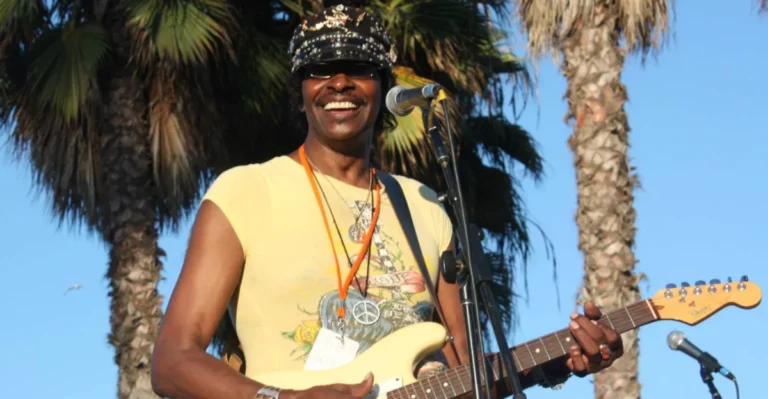
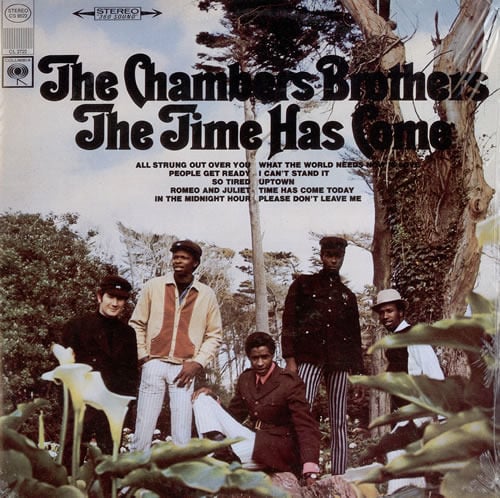
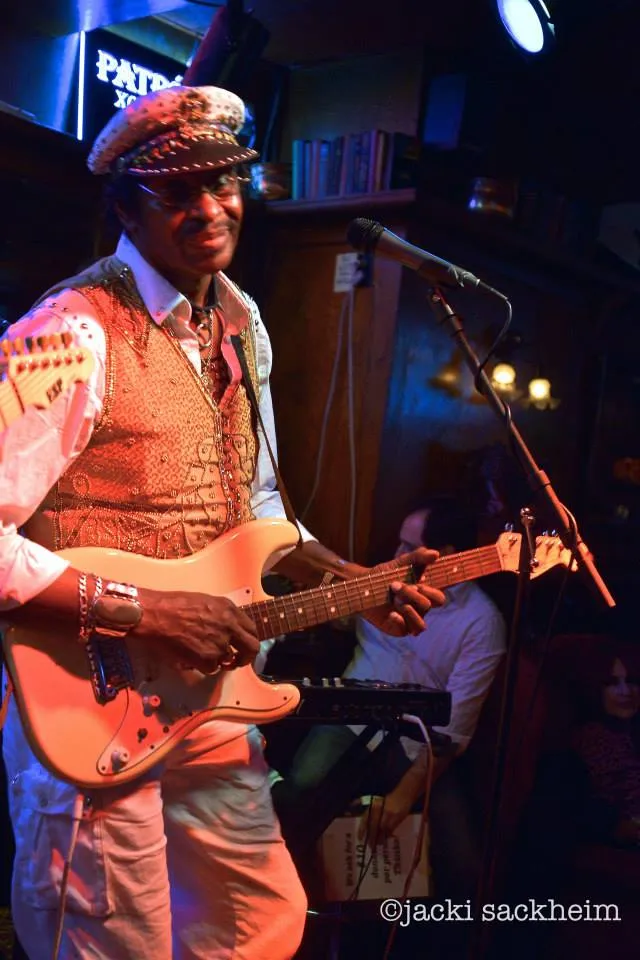
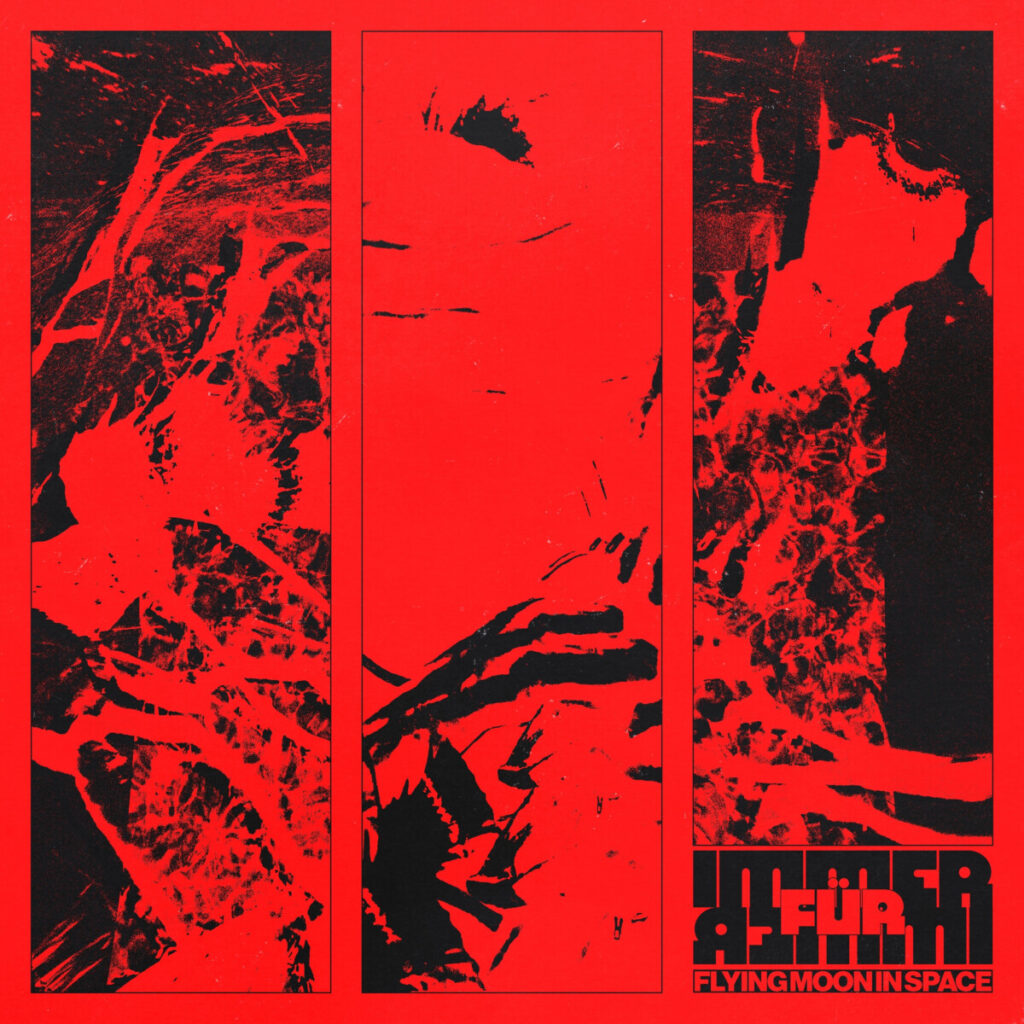
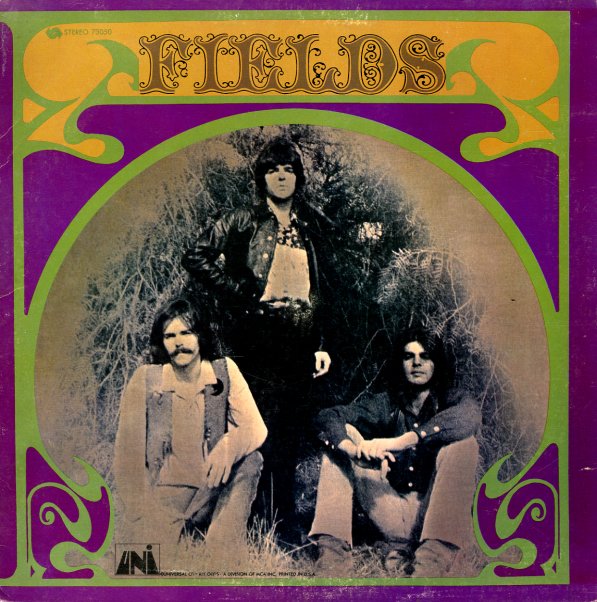

9 thoughts on “Interview: Willie Chambers of the Chambers Brothers”
Great interview Jason. So great hearing some of the inside stories from this bunch of guys. Thanks to you for bringing it to us all!
Thanks. He had some great stories.
Was lucky enough to see the Bothers perform in San Diego in late 60’s with Taj Mahal. What a fantastic night. One of those that I go back and relive often. Love their music and have turned my kids and grandkids on to Time and Love Peace and Happiness. Good interview. Thanks
Great! Thanks for checking out the interview.
What a great interview, a connection with history by someone who was there at the time.
I’m about to see Willie’s brother Lester this weekend, performing with his son Dylan, and the great band Moonalice and the wonderful close harmony T Sisters.
Have a great time at the show and thanks for checking out the interview.
Jason,
Appreciate this interview from the bottom of my heart! You did such a fabulous job!! Love how you let Willie speak but just asked few questions, masterful!!
I’d love to meet Joe Chambers! How is he doing?
Take care!
Alan
Thanks, Alan. That’s high praise and I appreciate it.
Unfortunately, I don’t know how Joe is doing. However, there is a Chambers Brothers Appreciation group on Facebook. You might try posting your question on there.
Chris, I appreciate your comment. Great you’re gonna see Lester & his son! I’ve tried to find his brother Joe (lead singer for Time Has Come Today) but not getting much. I know he’s alive but wonder how he’s doing. Do you know? Anyhow, thanks for your input and hope you enjoyed the show. Alan
Izyal@aol.com